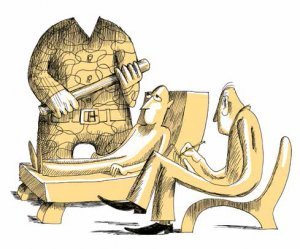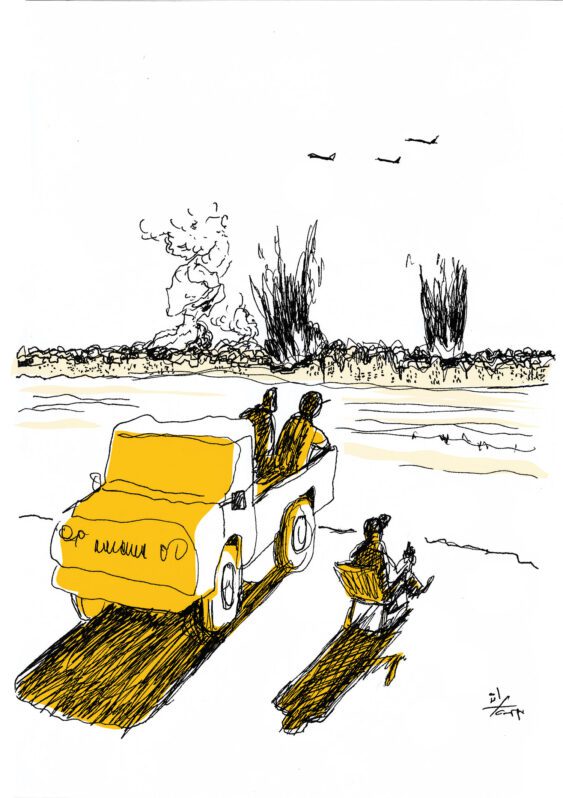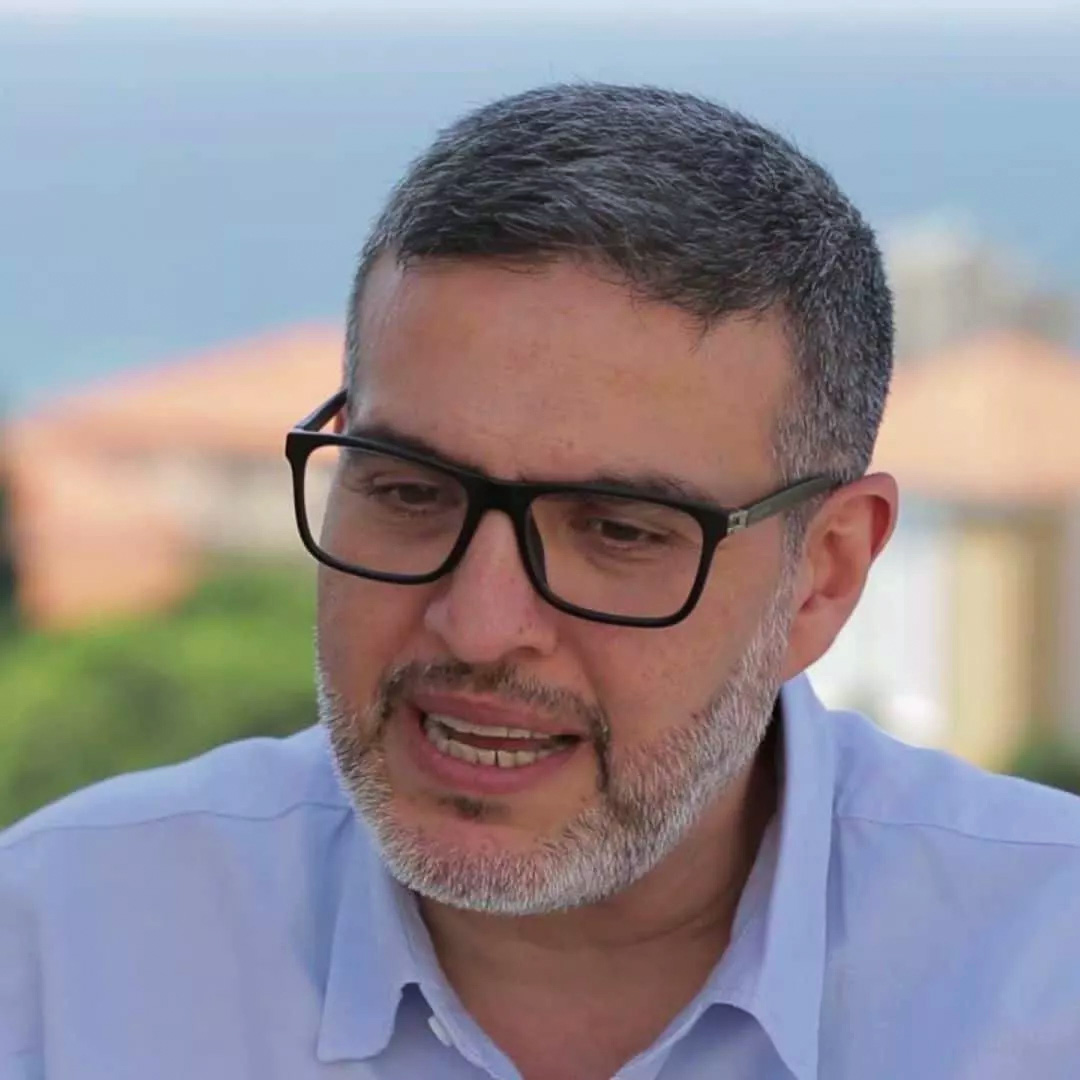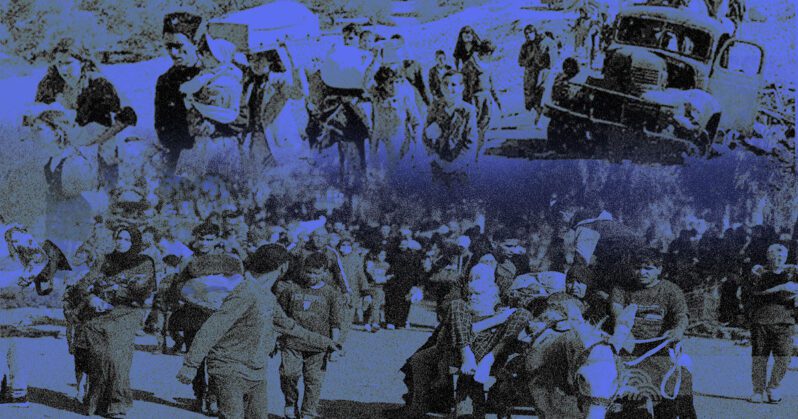Postponed Treatment: The Ongoing Prosecution of Drug Addicts in Lebanon

A total of 2,709 people were arrested for the “crime” of drug use in Lebanon in 2014, according to official statistics from the Central Anti-Drug Bureau.[1] Yet according to the Civil Observatory for an Independent and Transparent Judiciary (hereafter, the “Observatory”), only around 110 drug addiction cases have been referred to the National Committee for Combating Addiction since it was revived at the start of 2013.[2] The staggering difference between the number of people prosecuted for drug use each year and the number referred to the Committee for treatment, raises several questions about the weak application of the principle of “treatment as an alternative to prosecution and punishment”, which was consecrated by the Drugs Act of 1998. This law stipulates that addicts should be referred to the Committee as soon as they commit to treatment and that their prosecution should be suspended during treatment and dropped entirely if the treatment is successful.
The questions raised by the above mentioned statistics become more pressing given that a number of key obstacles [to proper treatment] have been overcome during the last two years. These include the reactivation of the previously-dormant National Committee for Combating Addiction, as well as making available several treatment centers, the most important being the Dahr El Bachek Hospital. Additionally, in a ruling issued on October 3, 2013, Lebanon’s Court of Cassation resolved the judicial debate over the extent to which the aforementioned principle is binding.[3] This ruling stipulated that a judge examining a drug addict’s case must halt legal proceedings as soon as the addict commits to treatment; the judge has no discretionary power in this area. In the wake of this ruling, the year 2014 witnessed what appeared to be a domino effect; several similar rulings were issued, the most important being those made by the Court of Appeal for Misdemeanors in Beirut, and the Criminal Court in Baabda.[4]
One of the [remaining] obstacles may be the reluctance of some judges to halt legal proceedings in the cases they are examining, or their ignorance of the mechanisms for referring cases to the Committee. However, an examination of prosecuting such cases and the circumstances surrounding them shows that there are several other obstacles, some of which have more impact than the stances judges are taking on the issue.
The Power to Punish and Condemn or the Power to Pressure and Motivate?
One of the major and critical obstacles is the phenomenon of systematically arresting addicts during preliminary investigations. A 2010 study of legal prosecutions conducted by NGO Skoun (Lebanese Addictions Center), showed that in 90% of cases the Public Prosecution Office arrested the addicts during the preliminary investigation.[5] The average period of administrative detention (which takes place before the case is referred to the competent public prosecution’s office) lasted 6½ days, which exceeds the maximum period of 96 hours allowed by law. In a more recent case (2013), a suspected drug user was detained for 20 days in the Antelias police station, a flagrant violation of Article 47 of the Code of Criminal Procedure. The delay occurred on the pretext of administrative congestion within the Central Anti-Drug Bureau (which has investigative jurisdiction), and in the Baabda Palace of Justice (home of the Public Prosecution Office with jurisdiction to settle the case). The Central Anti-Drug Bureau merely sent an investigator to the Antelias police station to conduct the necessary interrogations with the detained suspect, but this did not result in his release. In fact, the suspect was only released after a long toil in which one request after another were presented to the Investigating Judge in Baabda.
The same study also showed that the average time that people accused of drug use (a misdemeanor) spent in preventive detention was approximately 50 days. Like administrative detention, preventive detention occurred in around 90% of cases. Hence, the phenomenon of both administrative and preventive detention is rampant in drug addiction cases.
In reality, this phenomenon negatively impacts the desire of addicts under prosecution to undergo treatment. What could prompt addicts to undergo treatment when they have been jailed for a number of days, usually in excess of the period allowed by law, and in conditions that totally contradict human dignity? That judges, either openly or implicitly, limited prison time to time served in 65% of the cases reviewed in the aforementioned study (with or without also issuing a fine), makes this question more pressing. Notably, most of the rulings for prison sentences longer than the time served were also issued in absentia. Given these statistics, addicts who have been detained for long periods clearly know that they have practically served their primary sentence before rulings are issued. They are aware that if their trials continue, the most they stand to lose is the cost of a fine, which varies between LL2,000,000 and LL5,000,000 [US$1,330 – US$3,320]. This raises the following question: why would addicts choose treatment to avoid punishment, when in practice they usually serve their sentences before appearing in court? In such cases, they are punished regardless of their readiness to withdraw from substance use, or undergo treatment for their addiction. Consequently, the powerful tool to prosecute and detain becomes a tool to condemn and deter that is actually put to full use, instead of a power to pressure and motivate addicts to undergo treatment as intended by the legislators.
The only benefit of treatment that addicts can expect in such cases may be maintaining a clean criminal record. However, in many cases this benefit does not exist. This is because, firstly, many addicts are repeat offenders. Secondly, failing to submit judgment summaries, for one reason or another, to the criminal record database is a pervasive custom in court offices. Furthermore, addicts can “clean” their criminal records after three years.
What do Addicts Stand to Gain by Choosing Treatment?
As mentioned earlier, addicts usually discover that they have practically served their sentences before their trials even begin. Hence, they have two choices. On one hand, they can attend one or two court hearings and concede to the allegations against them without committing to treatment; in which case, rulings will be issued against them and their cases will end, usually with no more damage than a relatively low fine. On the other hand, they can commit to treatment and request referral to the Committee. This entails attending additional hearings before the Committee, going for medical examinations, and perhaps submitting to physical and psychological detoxification procedures that deprive them of their freedom and impose on them high financial costs. Of course, they must also totally withdraw from drug use during treatment and may be subjected to months of confinement within an internal treatment facility. Having to forgo the pleasure of using drugs also influences an addict’s decision, usually turning the no-treatment option into a more favoured one. This explains why a large number of addicts refrain from pleading the principle of “treatment as an alternative to prosecution and punishment”; they find that for them, the negative consequences outweigh the positive. Therefore, in reality their choice is not between treatment and prosecution. Rather, to a large extent, it is merely a choice between not undergoing treatment and paying a fine on one hand, and undergoing treatment that costs more time and money than said fine on the other. Punishment still occurs in both cases.
Pleading the Principle of Treatment as an Alternative to Prosecution and Punishment: What do Lawyers Gain?
Lawyers appear to be no better off [than judges in regards to applying the principle of treatment in a judicious manner]. In addition to the fact that they are bound by the will of their clients, who may prefer not to undergo treatment, the fees discussed in their contracts are usually fixed. Hence, they generally have an interest in speeding up prosecution proceedings and avoiding any prolongation or complication. In this context, the Observatory recently recorded an incident that occurred in late last year before the Criminal Court in Beirut. In a case filed against over a dozen addicts. the lawyer for one defendant requested that his client’s case be separated from that of the other defendants. He asked for prosecution against his client to be halted, with the goal of having his case referred to the National Committee for Combating Addiction. Remarkably, instead of making similar requests for their own clients, the other lawyers in the suit approached the court bench and objected to the request. They justified their objection on the basis that the request would prolong litigation. It is also remarkable that most of them did not know of the Committee’s reactivation, or even the mechanisms stipulated by the Drugs Act of 1998, or the principle of “treatment as an alternative to prosecution and punishment”. This issue may stem from practices inherited from past decades when the Committee was inactive, and the logic of punishment was dominant. During that time, the best outcome lawyers could achieve for their clients was a moderate fine without a prison sentence.
Expensive Treatment Procedures
As soon as addicts appear before the Committee, they are automatically referred to the Dahr El Bachek Hospital, where they are examined by a licensed psychiatrist. In an earlier issue, The Legal Agenda highlighted the difficulties stemming from these examinations. In particular, doctors procure examination fees from the people referred to them even though the examination, by law, is supposed to be free.[6] Furthermore, addicts who have to frequent a psychiatric clinic for some period of time must pay examination fees that may be exorbitant. In some documented cases, addicts have been compelled to frequent the clinic of one of the doctors working in Dahr El Bachek Hospital, giving rise to a conflict of interest.
Moreover, as long as the Committee’s decision centers on the testimony and assessment of the examining doctor or treatment center, the latter two have a broad margin for determining the fate of the individuals facing prosecution. Therefore, transparency mechanisms must be established to ensure that doctors and treatment centers are making decisions according to professional standards, and addicts must be given the right to a Committee review should any abuse occur.
The National Committee for Combating Addiction: No Full Time Staff, No Compensation, and One Committee for All of Lebanon
Another issue is that none of the Committee’s five members are full time staff, and none are paid extra for their work. Additionally, the Committee covers all of Lebanon. According to the Observatory’s investigations, the Committee currently meets no more than once a month to process the cases brought before it.
Given that the Committee has, from its reactivation until today, processed 2% of all addiction cases, what would the situation be like if referring addicts to it were made commonplace?[7] Fully activating the principle of “treatment as an alternative to prosecution and punishment” would likely require serious thought about establishing a committee for every governorate, or at least one for every two governorates. It would also require thought about staffing such committees with full time members who, at the very least, are appropriately compensated.
This article is an edited translation from Arabic.
__________
[1] See the Central Anti-Drug Bureau official statistics on drug use from 2010 to 2014, which are published in conjunction with the publication of this article.
[2] For an introduction on this topic, see: “The Legal Agenda Launches the Civil Observatory for an Independent and Transparent Judiciary”, The Legal Agenda, June 9, 2014; for access to the arabic version, click here.
[3] See Court of Cassation ruling (criminal room 3, consisting of judge Sahir al-Haraka and advisor judges Ghassan Fawaz and Nahida Khaddaj), Issue No. 260 of 2013, published on The Legal Agenda’s website.
[4] See: Karim Nammour’s, “The Domino Effect in Drug Addiction Cases: the Principle of ‘Treatment as an Alternative to Prosecution’ Advances in the Courts After the Historic Court of Cassation Ruling”, The Legal Agenda, Issue No. 18.
[5] See Nizar Saghieh’s study in cooperation with Skoun, “The Policeman, the Judge, and the People Who Use Drugs”, 2011, published on The Legal Agenda’s website.
[6] See: “The Testimony of a Young Drug User About his First Addiction Committee Experience”, The Legal Agenda, Issue No. 10.
[7] Since the start of 2013, around 120 cases have been referred to the Committee, whereas 5,381 people were prosecuted for drug use between 2013 and 2014 alone.
Mapped through:
Articles, Fair Trial and Torture, Inequalities, Discrimination and Marginalisation, Lebanon
Related Articles



